Bryan Walsh – Level III – Blood Chemistry Interpretation – Metabolic Fitness Pro
₫997.00 ₫159.00
AVAILABLE for download.
Delivery: The download link will send to your email after successful payment.
If download link has problem, let me know (via email), we will re-send link within 1-6 hours.
Bryan Walsh - Level III - Blood Chemistry Interpretation - Metabolic Fitness ProProof:
Metabolic Fitness Pro – Level III – Blood Chemistry Interpretation
If you’re not running blood chemistry tests, or interpreting them from a functional medicine perspective, you’re wasting your patient’s time and money.
Blood chemistry is the most accurate, cost-effective, comprehensive, and scientifically-validated laboratory test if you know how to interpret it correctly. Come learn the first truly evidence-based course on the physiology and interpretation of blood chemistry.
Lessons: 18 Modules
Length: 18.5 hours
Access: Lifetime access
Blood Chemistry is the Most Important Test You Can Run.
Unfortunately, blood chemistry tests do not get the credit they deserve in this industry. They often lose out to newer, fancier, and more expensive functional lab tests even though these tests tell you only a fraction of what a blood chemistry does.
Not to mention, most of these new tests have zero scientific validation or proof of their accuracy.
There is no other test in existence that tells you as much as a blood chemistry test, for pennies compared to other tests, or that has the scientific validation, proof, reproducibility, or accuracy as a blood chemistry test.
But, Not if you Aren’t Reading it Correctly.
Running a blood chemistry test on every patient of yours is only the beginning.
You have to know how to interpret it to get the most out of it.
If you think about it, it’s only a piece of paper with black ink printed on it. But the knowledge and insights you can gain about your patients from this black and white piece of paper when you interpret it correctly are almost like something out of the Davinci Code.
You can unlock physiological and biochemical secrets about your patients that no other practitioner could tell them.
All because you know how to interpret a blood chemistry test. And there are two main things you need to know to interpret a blood chemistry test correctly – understanding of the markers and accurate reference ranges.
Most Blood Chemistry Education Will Not Help You Help Your Clients.
Here’s the thing – blood chemistry education leaves a LOT to be desired.
Conventional medicine teaches blood chemistry in an old, stagnant, and static way, without considering the latest research about markers or reading the story that blood chemistry tells you.
It is very, “Here’s a marker. Here’s what it could be when it is elevated. And here’s what it could mean when it’s low. Now let’s move to the next marker.”
Also, conventional medicine teaches blood chemistry by focusing on disease, and not on health.
Functional medicine’s view of blood chemistry isn’t much better.
While it’s geared towards health, it’s outdated, watered-down, and has questionable scientific validity.
It’s taught more as cute soundbites that practitioners can then parrot back to their patients to justify supplement sales, which leaves everyone disappointed because ultimately, this method doesn’t work either.
This Blood Chemistry Course Will Give You the Skills You Need to Succeed.
We provide not only the industry’s first evidence-based functional reference ranges but also the physiology behind the markers, and how to apply our method of interpretation to every blood chemistry panel you come across.
❌No more wondering what test you should run with your patients.
❌No more telling people their lab test “looks normal” and awkwardly recommending another test because you have no idea what else to say.
❌No more scratching your head, wondering what a marker is or why it’s high or low.
Instead, you will..
✅Have the confidence of knowing which direction to go with patients when they walk through your door for the first time.
✅Have evidence-based reference ranges to evaluate health, not just disease, and find problems before they happen.
✅Understand the markers found on a lab so well physiologically, you don’t have to depend on an outdated book or questionable software program to guess what may be going on.
Do You Need This Course?
- Are you using expensive and scientifically-questionable functional medicine labs when the research is very clear on the clinical utility and accuracy of a standard blood chemistry test?
- Are you using arbitrary “optimal” reference ranges, when there are clearly evidence-based reference ranges?
- Are you reaching for advanced diagnoses, without first adequately (or accurately) assessing fundamental things such as micronutrient deficiencies?
- Do you find yourself saying things like “death begins in the colon”, “the thyroid is the master metabolism hormone”, or “the nervous system runs the body” as justification for only looking at the body through one set of lenses?
“Of all the conferences, seminars, and trainings my husband and I have been to, yours by far exceeded our expectations and without question provided the most value.”

Evelyn Andersen | MSN, FNP-C, APNP, CISSN
In This 18.5 Hour Course, You Will Learn
✔️The Industry’s FIRST evidence-based, scientifically-backed reference ranges
✔️An Introduction to The Cell Blueprint™, our method to finding clinical direction with even the most complex patients.
✔️Cutting-edge glucose regulation strategies, including markers that no one is running (or has even heard of) but needs to be!
✔️The latest information and reference ranges for cholesterol, including why and how elevated HDL (the good cholesterol) is not such a good thing
✔️The truth about mitochondrial dysfunction and why throwing a bunch of “mitochondria” supplements at someone is probably not going to do a thing for them
✔️Why and how a multivitamin will do more for someone than all the latest fancy supplements (yes, this includes curcumin)
✔️How to accurately evaluate subtle nuances in anemia, and why being acidic is actually protective for these people
✔️Cutting-edge information on antioxidants and oxidative stress, including BASIC markers on a blood chemistry that can tell you which patients need glutathione and which don’t
✔️A functional, evidence-based detox protocol opposite of what the industry commonly teaches
✔️To unravel the myths and misconceptions about pH and acid-base balance, including how to evaluate if what someone is eating is making them too acidic based on research
✔️Updated research on subclinical infections that will make you think twice (at least) about giving anyone iron
✔️The best, most accurate and valid ways of assessing hydration status in your patients and clients
✔️The ONE critical thing a patient can do that, according to research, protects them from dysfunctional physiology and even poor diet
✔️And SO much more . . .
Not only will you have an incredible working knowledge of each biochemical pathway, you’ll actually understand how the pathways work to the point that you can have educated conversations with your colleagues about them (or know more than them!).
After taking this course, you have the tools and foundation for CLINICAL SUCCESS. You’ll be able to:
✔️Interpret a blood chemistry from an evidence-based functional medicine perspective
✔️Simplify your therapeutic protocols
✔️Understand and apply the latest research on glucose regulation, mitochondrial dysfunction, detoxification, and more
✔️Easily identify physiological priorities in your patients and clients
✔️Have confidence and clarity in your clinical decision making
“I attended this MINDBLOWING Blood Chemistry Training with Dr. Bryan Walsh a few weeks ago. Any practitioner, doctor, nutritionist, chiropractor, naturopath, etc, who looks at blood labs . . . Please spend the time and money to take this weekend workshop – it’s incredible! I’ve taken many blood chemistry trainings in the past and nothing compares to this! You will be wondering why you were never taught this – it’s because no one has ever pulled together the research like he has.”

Heidi Lyndacker | M.S., CNS
Course Details
Module 1
Intro To Blood
In this video, we cover the important characteristics of blood including functions, regulation, hematopoesis, and main constituents.
Module 2
CBC with Differential
Here we cover the specifics of how red blood cells are made (erythropoiesis), the markers of a CBC and what they specifically are and measure, as well as iron metabolism and related markers.
Module 3
Enzymes and Wastes
This module takes a look at the physiology, biochemistry, and role of all the primary enzymes and wastes on a standard blood chemistry, including AST, ALT, alkaline phosphatase, GGT, LDH, creatinine, BUN, bilirubin, etc.
Module 4
Electrolytes
Here we go over the physiology, biochemistry and function of the major electrolytes found on a blood chemistry, including calcium, phosphorus, sodium, potassium, chloride and bicarbonate.
Module 5
Glucose and Lipids
In this module, we dive into the physiology of glucose regulation and related hormones and markers, as well as the physiology of the lipids found on a blood chemistry, including cholesterol and triacylglycerols.
Module 6
Introduction and Blood Chemistry
Now that physiology has been taught, we dive into the research and reasoning behind blood chemistry, including how ranges were created and why we’re teaching them the way we are.
Module 7
Glucose Regulation and Lipids
This 2.5 hour module covers glucose regulation and related markers like you’ve never seen it. It includes physiology, a half-dozen glucose-related markers, evidence-based reference ranges, myth-busting on hypoglycemia and insulin resistance, and so much more.
Module 8
Micronutrients
This module covers some of the primary micronutrients found on a blood chemistry, including a detailed look at magnesium, calcium, and phosphorus, including evidence-based reference ranges for each.
Module 9
CBC and Anemia
This module covers evidence-based reference ranges for a CBC, the physiology of each marker, and how do identify, differentiate, and discern different types of anemias.
Module 10
Mitochondria
This module covers all the relevant research on mitochondrial dysfunction, what causes it, whether or not we can accurately assess it using laboratory testing (hint: we can’t, well), and emerging therapeutic options for patients and clients with mitochondrial issues.
Module 11
Oxidative Stress
It turns out that much of what we know and were taught about free radicals and oxidative stress is obsolete, and needs an upgrade. This module not only brings this much needed scientific literature-based upgrade of information, but also covers the best, most accurate, and scientifically valid means of using a blood chemistry to evaluate oxidative stress.
Module 12
Immune Dysregulation
Sometimes referred to as “autoimmunity”, this module is an introduction to how the immune system can become dysfunctional and start attacking self-tissues, a novel marker that is a true Th1 marker, and how to accurately evaluate a few proteins on a blood chemistry, including albumin and globulins.
Module 13
Infections
This module covers the role of silent, or latent, infections and the role of iron (and possibly iron deficiency anemia) in people with chronic infections. The differential of a CBC is covered in detail, with compelling evidence-based optimal ranges.
Module 14
Inflammation, Cell Damage, and Wastes
This module covers some of the markers relating to inflammation such as CRP, ESR, and how using both together is better than either individually. It also covers blood chemistry enzymes (AST, ALT, GGT), wastes (creatinine, bilirubin, and BUN), and a section on fatty liver that you have to see to believe.
Module 15
Detoxification
This module is an abbreviated version of the All About Detoxification course, the first truly evidence-based course on the science of detoxification. In this module, you’ll learn the basics of detoxification as well as principles of performing evidence-based detoxification programs in your practice.
Module 16
Acid-Base Balance
This module covers the science behind the hotly contested conversations surrounding acidity, alkalinity, and pH balance. Blood chemistry markers such as chloride and bicarbonate are covered, as well as validated calculations for serum pH.
Module 17
Hydration
This module evaluates the many different ways of assessing hydration status, and which is the most accurate.You’ll learn validated calculations for osmolarity and viscosity and find yourself wondering why you’ve never heard of these calculations before.
Module 18
Social Isolation and Purpose
Biochemistry, physiology, and blood chemistry interpretation are all incredible tools in your quest to help your patients, but if we aren’t considering their perspective, world view, and purpose in life, we are failing our patients and clients. Get inspired to truly help people with this module.
We Make it Easy for You to Show Off Your New Skills.
When you complete the course, you will receive an impressive Certificate of Completion that lets everyone know the time you have invested in your professional development. Hang it on your wall, put it on your website, use it in your marketing, and/or send it in to your continuing education organization to earn CEUs.*
*Check with your organization’s requirements to confirm approval.
“Wow! This was exactly what I was looking for and more. I have a pretty high-volume practice and have been helping people for a while and the information and research provided was second to none. This seminar will definitely help me view “basic” bloodwork in a new light as well as help me to help others in a better capacity. I can’t recommend this material enough!”

Dr. Jared Seigler | DC, CFMP, CGP
Be the first to review “Bryan Walsh – Level III – Blood Chemistry Interpretation – Metabolic Fitness Pro” Cancel reply
Related products
Medical & Health
Medical & Health

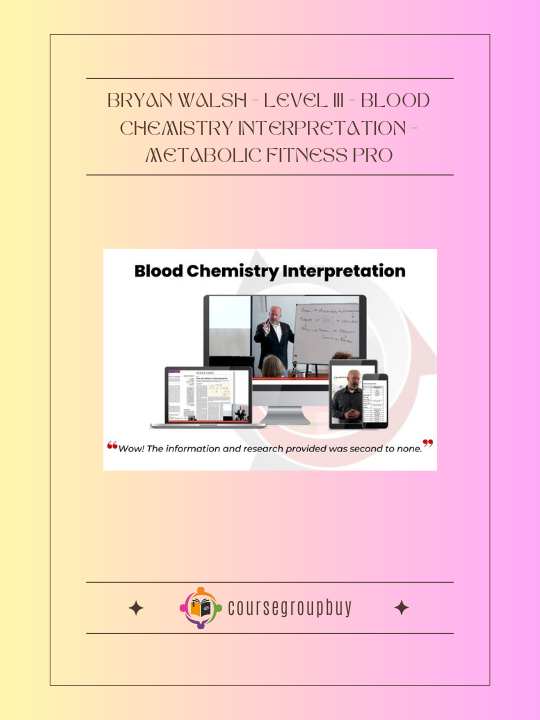

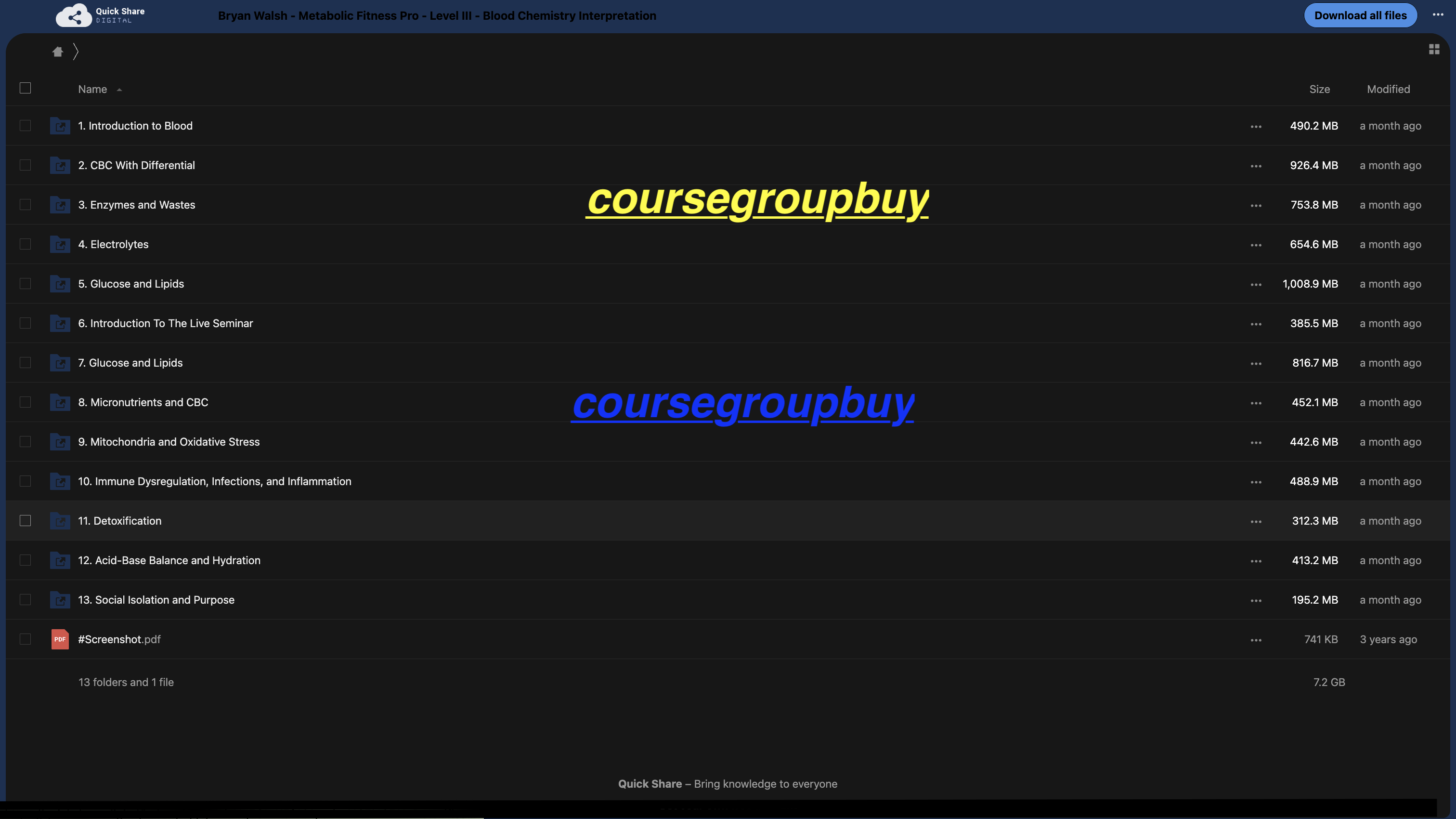




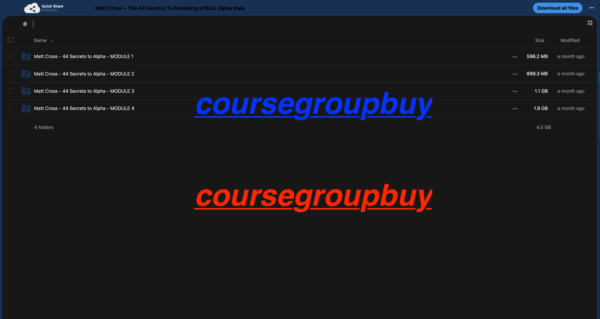
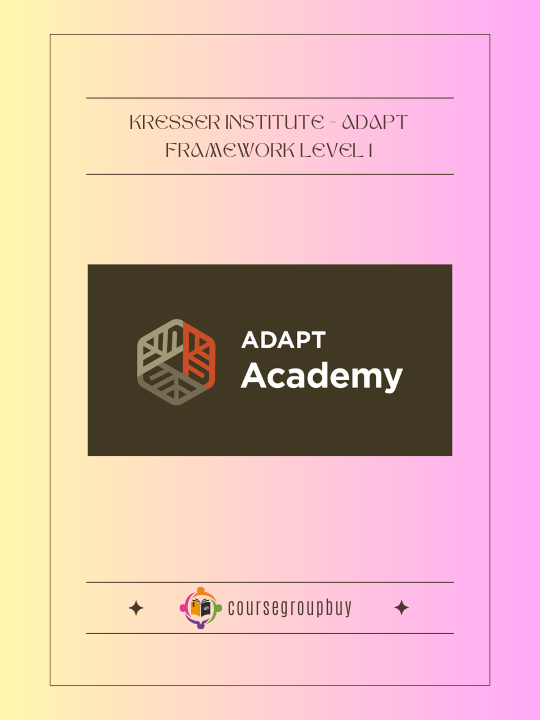
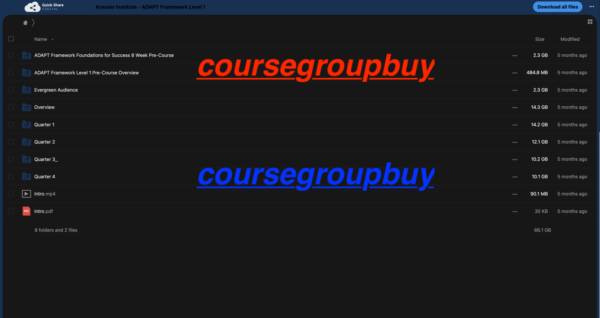

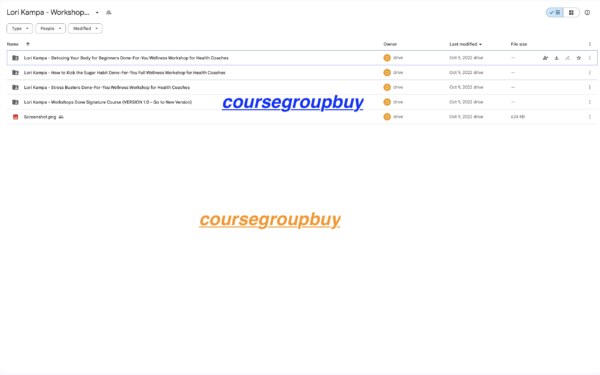



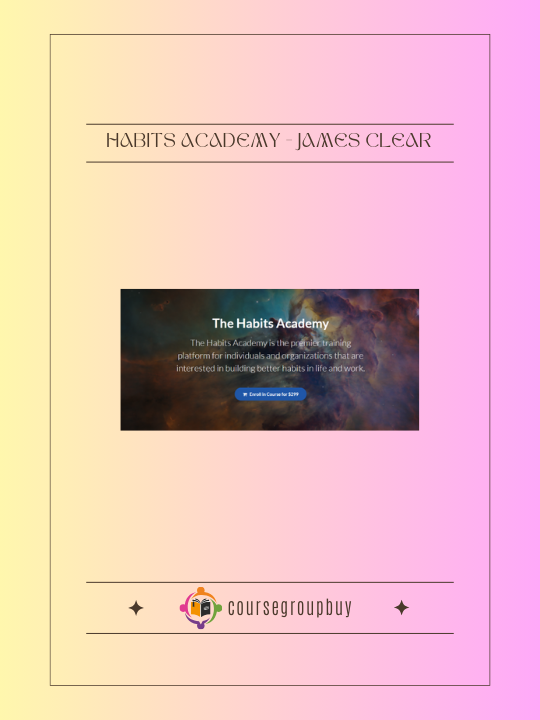
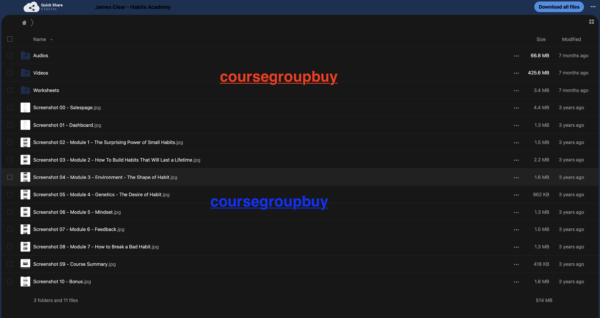
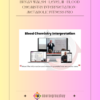
Reviews
There are no reviews yet.